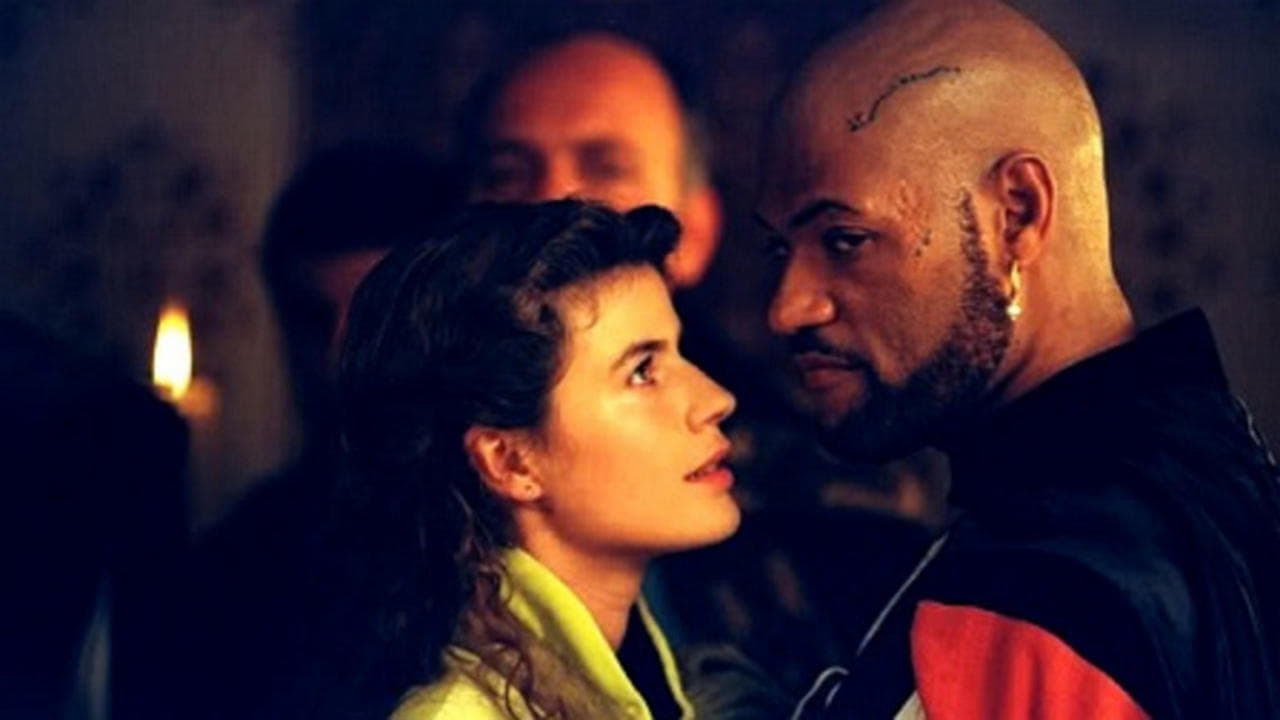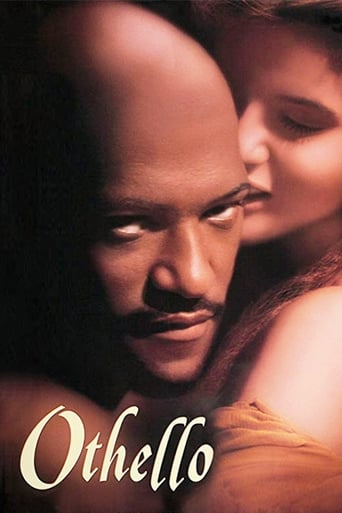

Very very predictable, including the post credit scene !!!
... View MoreSurprisingly incoherent and boring
... View MoreThere is just so much movie here. For some it may be too much. But in the same secretly sarcastic way most telemarketers say the phrase, the title of this one is particularly apt.
... View MoreTrue to its essence, the characters remain on the same line and manage to entertain the viewer, each highlighting their own distinctive qualities or touches.
... View Moreit is almost a spell. of a meet after a long time. because the performance of Laurence Fishburne is amazing. the result - scene by scene he becomes Othello in a manner who escapes from a simple role. and Kenneth Branagh - yes, he gives to Iago the right word and though and intention and gesture. because this is the best good point of film - to recreate a world in each of its details. maybe, it is not the best Othello version. but it is one of the most honest. and realistic. you feel the Moor. each of his states. each traits of his jealousy and fury and doubts. maybe, it is the memorable role of Laurence Fishburne career.
... View MoreOliver Parker directed the 1995 version of William Shakespeare's Othello starring Laurence Fishburne in the titular role. This version also boasts the acting talent of Kenneth Branagh as the antagonist. Enraged that he has been passed over for a promotion, Iago develops an elaborate plan to strike revenge against the man who passed him over, Othello. Presenting the danger of isolation as a master manipulator takes advantage of another man, Othello plays out a cautionary tale of power and struggle.Iago (Kenneth Branagh) is furious that his loyalty and civility has been overshadowed by another, and he instantly begins devising an elaborate plot to seek revenge against Othello and bring about his downfall. Becoming obsessed with his master plot, Iago develops a narcissistic addiction to bringing about Othello's downfall.The highlight of this film is the acting of Kenneth Branagh's Iago. He plays the role in a deliberate calculating method, just as the character begs to be played. Laurence Fishburne's turn in the titular role was excellent as well. the action is centered around Fishburne, but he is a secondary character to that of the manipulator Iago. Fishburne plays this distinction well and the film prospers from his lead role.Days ago after my initial viewing of this film, I thought it was wonderful; after taking some time to process it, however, I think it was pretty forgettable. Initially, I thought the wall-breaking of Branagh was a fun way to engage the audience, but otherwise, I wasn't much engaged. As good as Branagh's Iago was, it was played differently than I imagined from the Shakespeare original. He was much closer to the Desdemona (Irène Jacob) character than I ever thought he was in the play. This may be the most faithful adaptation of Othello, but the characterization was different than I ever expected.
... View MoreThis film is violent, prurient, and exploitative. It is unjust. It is needed that a great actor should be Iago, but here in this perfect performance from Kenneth Branagh, we are abused. We are shorted our Othello. The camera lingers on handsome Iago, catches his every thought - but the Moor is more a distant spectacle, meted more thriftily the camera's time and the microphone's. We see him feast, dance, fight, consummate his vows, but we don't get the Promethean heat. Our hero is tormented by salacious visions, unnecessary, over-long, and ineffective. Fishburne is obviously comfortable with Shakespeare and capable of the range of emotions, but he stays too aloof, too formal. He is most tormented by the mere idea of Desi's disloyalty, tbe matter of proof and of her more incriminating acts are de-emphasized, and doubt (of Iago) holds no place. All pathos is Desdemona's and much of hers taken, too. The music is quite good, including Iago's and Desi's songs. Roderigo and Cassio well done. Desdemona has an annoying accent and too much of a single look - very young and innocent. Emilia quite good. The whole doesn't hold together. I love Branagh, I think Fishburne could do better, but Orson Welles is still the standard for Othello, piteous, subtle, a man driven by irresistible suggestion, whereas Fishburne seems willingly to go along, and kills more violently than gently and regretfully. Perhaps it is an unwhitewashed Othello...
... View MoreI studied Othello for my English Lit A-Level last year, and found it simply one of the most wonderful plays I've ever read - painfully compelling, in that the story is so terrible and tragic that it hurts to read it, yet you just cannot put it down. The language is some of Shakespeare's most complex, yet when understood, also some of the most eloquent and beautiful ever written.The film had a lot to live up to.(This may contain plot spoilers.)In my opinion, Fishburne was an excellent Othello - brooding, jealous, suspicious, in anguish - everything I expected. He spoke the lines well and had great presence. Irene Jacob as Desdemona wasn't such a powerful character, but then was never intended to be - even in the play she was depicted as weak, although she does have her stronger characteristics, she is inherently not one of the most important or complex characters.No, for me it was, as always, Branagh, who stole the show. A wonderfully chilling performance, which left me convinced that Iago was possibly the most evil villain I have come across in any of Shakespeare's works. He shows no remorse, no emotion, but simply calculation and cruelty. He plots evil for evil's sake, and Branagh portrayed this very well. If you watch it, it's in his eyes, the way he looks at the others and at the camera - it ranges from impassivity to pure, unadulterated evil. Iago is not simply a "baddie" - he is a "demi-devil", fuelled by nothing more than the desire to harm others. Iago seems to have no real motive, although several are given (jealousy of Othello and Desdemona, racism, hatred of Othello, anger of being passed over for promotion etc etc), but I believe that he is not intended to have a motive - he is evil simply because that is his way, and he needs no motive.Some people have criticised the film for not showing enough of Desdemona and Othello together, or that it seems odd that Iago has so much hatred for Othello and that his plan culminates so quickly. This is from the Shakespeare, where the concept of "double time" is used. There are two time frames, it seems, in the play, which is hard to put across in a film, but which I think worked well enough that I wasn't bothered by it. It all happens in a few days, in one time frame, but we get the impression that it takes far longer than this. This is difficult to get your head around, but it does make some kind of sense. :) Anyway, they couldn't have added bits in without adding to Shakespeare's lines, and I'd rather they didn't do that. :)Overall, a very good film adaptation of a wonderfully moving and disturbing play. I highly recommend it.
... View More